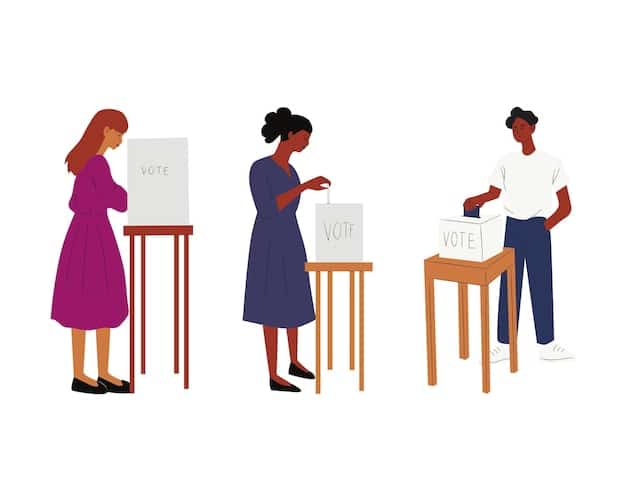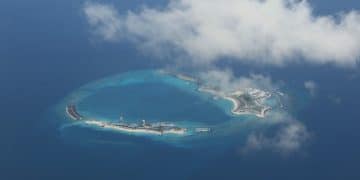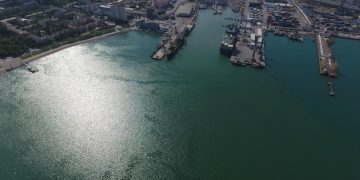Key Geopolitical Challenges for the US in Africa in 2025

In 2025, the US faces key geopolitical challenges in Africa, including countering Chinese influence, managing security threats from terrorism and instability, promoting economic development through strategic investments, and navigating complex political landscapes while upholding democratic values.
Navigating the intricate web of international relations, the United States faces a complex set of geopolitical challenges in Africa. As we look towards 2025, understanding these challenges is crucial for shaping effective foreign policy and ensuring stability on the continent. The key question is: What are the Key Geopolitical Challenges Facing the US in Africa in 2025?
Understanding the Shifting Geopolitical Landscape in Africa
Africa’s geopolitical importance is rapidly increasing, driven by its growing population, abundant natural resources, and strategic location. This shift presents both opportunities and challenges for the United States, requiring a nuanced understanding of the continent’s diverse dynamics.
The rise of new global powers vying for influence, coupled with internal conflicts and governance issues, complicates the US’s strategic calculations. A comprehensive approach is needed to effectively address these multifaceted challenges.
The Scramble for Influence: China and Russia
China’s economic and political influence in Africa has grown significantly over the past two decades, challenging the traditional dominance of Western powers. Likewise, Russia has been trying to increase it’s influence in the region.
Understanding the strategies employed by these nations is crucial for the US to maintain its strategic interests and partnerships in Africa.
- China’s Belt and Road Initiative: Impacts on infrastructure and trade.
- Russia’s Security Partnerships: Implications for regional stability.
- US Response Strategies: Diplomatic and economic tools.
The US needs to recalibrate its approach to ensure it remains a relevant and influential partner in Africa, focusing on mutual benefits and sustainable development.

In conclusion, the shifting geopolitical landscape requires the US to be agile and adaptive, fostering partnerships that align with African nations’ aspirations and promote long-term stability.
Combating Terrorism and Insurgency
Terrorism and violent extremism remain significant threats to stability in several African regions. These threats not only jeopardize local populations but also pose risks to international security, requiring a coordinated response.
The US faces the challenge of supporting African-led counterterrorism efforts while addressing the underlying causes of radicalization and instability.
Drivers of Instability: Regional Conflicts and Extremism
Factors such as poverty, weak governance, and ethnic tensions contribute to the rise of extremist groups. Understanding these drivers is essential for crafting effective counterterrorism strategies.
The US must work with African partners to address these root causes, promoting good governance, economic opportunity, and social inclusion.
- The Sahel Region: Addressing the spread of extremist ideologies.
- East Africa: Countering Al-Shabaab and its affiliates.
- US Security Assistance: Balancing security and human rights.
A comprehensive approach that combines security assistance with development aid and diplomacy is crucial for building resilient communities and preventing the spread of extremism.
In conclusion, the US must adopt a holistic approach to combating terrorism and insurgency, working in close partnership with African nations to address both the symptoms and the underlying causes of instability.
Promoting Economic Development and Investment
Africa’s economic potential is immense, but realizing this potential requires significant investment in infrastructure, education, and governance. The US has a key role to play in supporting sustainable economic development on the continent.
The challenge lies in fostering economic partnerships that benefit both the US and African nations, promoting inclusive growth and creating opportunities for all.
Opportunities and Challenges: Trade and Investment
Africa presents a range of investment opportunities across various sectors, including agriculture, energy, and technology. However, challenges such as corruption, regulatory uncertainty, and infrastructure deficits need to be addressed.
The US can leverage its expertise and resources to help African countries overcome these challenges, promoting a business-friendly environment and attracting foreign investment.
- The African Continental Free Trade Area (AfCFTA): Opportunities for US businesses.
- Infrastructure Development: Bridging the gap through strategic investments.
- Support for Entrepreneurship: Empowering local businesses.
By promoting sustainable economic development, the US can help create a more stable and prosperous Africa, fostering long-term partnerships and mutual benefits.
In conclusion, promoting sustainable economic development and investment is essential for addressing poverty, creating jobs, and fostering stability in Africa, requiring a collaborative approach between the US and African nations.
Navigating Political Instability and Governance Challenges
Many African countries continue to face challenges in terms of political stability, democratic governance, and human rights. These challenges can undermine economic development and create opportunities for extremist groups to thrive.
The US needs to strike a balance between supporting democratic reforms and respecting the sovereignty of African nations, promoting good governance without imposing external solutions.

Promoting Democracy and Human Rights
Supporting democratic institutions, promoting free and fair elections, and protecting human rights are essential for building stable and inclusive societies. The US can play a key role in these efforts.
However, it is important to avoid imposing external models and instead support African-led initiatives that are tailored to local contexts.
- Strengthening Democratic Institutions: Supporting parliaments and judiciaries.
- Promoting Civil Society: Empowering local organizations.
- Addressing Corruption: Enhancing transparency and accountability.
By prioritizing democracy, human rights, and good governance, the US can help create a more stable and prosperous Africa, fostering long-term partnerships and mutual respect.
In conclusion, navigating political instability and governance challenges requires a nuanced and context-sensitive approach, prioritizing African-led solutions and fostering long-term partnerships based on mutual respect and shared values.
Addressing Climate Change and Environmental Degradation
Climate change poses a significant threat to Africa, exacerbating existing challenges such as food insecurity, water scarcity, and desertification. The US has a responsibility to support African nations in adapting to and mitigating the impacts of climate change.
This includes investing in renewable energy, promoting sustainable agriculture, and protecting biodiversity, while working with African partners to develop climate-resilient economies.
Climate change is a multiplier of existing threats in Africa, exacerbating conflicts over resources and displacing populations.
The US needs to work with African partners to build climate-resilient infrastructure, develop drought-resistant crops, and promote sustainable land management practices.
- Investing in Renewable Energy: Promoting clean energy solutions.
- Sustainable Agriculture: Enhancing food security and resilience.
- Protecting Biodiversity: Conserving natural resources.
The US can leverage its expertise and resources to help African countries implement climate-smart policies and practices, fostering sustainable development and building resilience to climate change.
In conclusion, addressing climate change and environmental degradation is essential for ensuring a sustainable future for Africa, requiring a collaborative effort between the US and African nations to implement climate-smart policies and practices.
Fostering Stronger Diplomatic Partnerships
The key to navigating the complex geopolitical landscape in Africa lies in fostering strong and mutually beneficial diplomatic partnerships. The US needs to strengthen its ties with African governments, regional organizations, and civil society groups.
This includes engaging in regular dialogue, providing technical assistance, and supporting African-led initiatives that promote peace, security, and development.
Strong diplomatic ties are essential for addressing shared challenges and promoting mutual interests. The US needs to engage in regular dialogue with African leaders and civil society representatives to understand their perspectives and priorities.
The US needs to provide technical assistance to African governments to strengthen their capacity to address challenges such as terrorism, corruption, and climate change.
- Engaging in Regular Dialogue: Fostering mutual understanding.
- Providing Technical Assistance: Building capacity and expertise.
- Supporting African-Led Initiatives: Promoting local ownership and sustainability.
By fostering stronger diplomatic partnerships, the US can build trust, enhance cooperation, and promote shared values in Africa, ensuring a more stable and prosperous future for the continent.
In conclusion, fostering stronger diplomatic partnerships is essential for navigating the complex geopolitical landscape in Africa, requiring a commitment to dialogue, technical assistance, and support for African-led initiatives.
| Key Point | Brief Description |
|---|---|
| 🌍 Shifting Geopolitics | Increased competition from China and Russia impacts US strategy. |
| 🛡️ Terrorism | Combating extremism requires holistic security and development efforts. |
| 🌱 Economic Development | Fostering investment and trade for inclusive sustainable growth. |
| 🗳️ Good Governance | Promoting democracy, human rights, and anti-corruption initiatives. |
Frequently Asked Questions
▼
The US counters Chinese influence by fostering strong economic ties through trade and investment, supporting democratic governance, and promoting security cooperation to ensure stability and mutual benefits for African nations.
▼
The US addresses terrorism by providing military and intelligence support, promoting good governance, and investing in local communities to counter extremist ideologies, working closely with regional partners.
▼
The US is focusing on sectors such as renewable energy, infrastructure, technology, and agriculture, aiming to foster economic growth, create jobs, and promote sustainable development in African countries.
▼
The US promotes democratic governance by supporting free and fair elections, strengthening democratic institutions, and advocating for human rights, empowering civil society organizations, and promoting transparency.
▼
Climate change exacerbates challenges like food insecurity and resource scarcity, fueling conflicts and displacement, impacting US interests by potentially destabilizing regions, and intensifying humanitarian crises, complicating diplomatic efforts.
Conclusion
In conclusion, navigating the geopolitical landscape of Africa in 2025 presents multifaceted challenges for the US. Addressing these challenges effectively requires a nuanced and adaptive approach that prioritizes partnership, sustainable development, and respect for African sovereignty. By focusing on these key areas, the US can foster a more stable, prosperous, and secure future for both Africa and itself.





